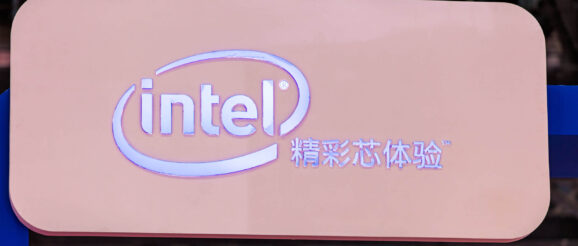Intel deepens ties with China with a chip innovation center in Shenzhen

- The US chip giant partnered with the Nanshan district government and local tech firms in China on a center focusing on AI, chip applications, and edge computing.
- Intel aims to help local domestic start-ups, even as Washington pressures semiconductor firms to reduce trade with China.
- Intel also pledged technical and resource support for companies located in Nanshan.
Since Washington imposed sweeping export controls against China late last year, the Biden administration has gradually intensified the chip war against the Eastern powerhouse. Most American semiconductor players are unhappy with the escalation, especially considering China is one of their most important markets. That is why Intel Corp is actively doubling down on the Chinese market despite the heightened tech war.
For starters, just over a week ago, the CEOs of three homegrown American chip giants— Nvidia, Qualcomm, and Intel — were in Washington, pressing the Biden administration to exercise restraint on restricting their business with China. The sentiment is mostly the same – chip curbs by the US could backfire – but the Biden administration did not back down.
Instead, it added more layers to the export controls against China to scupper the Eastern powerhouse’s ability to get its hands on the semiconductors it needs for military modernization. So Intel decided to start walking down its path of maintaining good ties with China.

Intel said without orders from China, there would be much less need to proceed with projects such as Intel’s planned chip factory complex in Ohio.
(Photo by SAUL LOEB / AFP)
“Intel’s presence in China is significant because the country is one of the world’s largest markets, and also one of Intel’s most important markets,” CEO Patrick Gelsinger said at a sustainability summit hosted by the company in Beijing in April.
Gelsinger had also concluded a low-key trip to China last month, his second to the country in three months. Before July’s visit, Gelsinger’s previous trip to China was in April, when he remarked that China remains a crucial market for Intel, noting the company has had a presence in the country since 1986.
The trip in July was meant for Intel’s chip packaging and test plant in Chengdu, the capital of southwestern Sichuan province, where a celebration marked the company’s 20th anniversary of operations in the city.
Gelsinger said Chengdu played a critical role in the company’s global supply chain and noted that its “favorable” business environment paved the way for the “stable growth” of Intel and “enhanced confidence” for the company to expand in the region, according to a Chengdu government statement.
The trip coincided with the Chinese launch of the company’s Gaudi 2 processor designed for artificial intelligence (AI) deep-learning applications. The processor, not subject to US export restrictions, is an alternative to Nvidia’s A100 GPUs, widely used for training AI systems.
A new chip innovation center by Intel in Shenzhen, China
Following Gelsinger’s recent trips to China, the US chip giant continued attempting to increase its business ties in China. This week, Intel announced an innovation hub in Shenzhen, even as Washington pressures semiconductor firms to reduce trade with the country.
Intel and the Nanshan district government in Shenzhen, a technology hub in southern China, launched the Intel Greater Bay Area Innovation Centre on Saturday, according to a post published on the center’s official WeChat account. The statement said the center, meant to help domestic start-ups, will focus on AI, chip applications, and edge computing, among other technologies.
The district government aims for the partnership to grow into a global “innovation highland” through a combination of industrial policy, Intel’s product and technology ecosystem, and innovation from local partners.
“We will further leverage Intel’s technology and ecosystem strengths … facilitate the integration and development of emerging sectors in the Greater Bay Area and across the country … and help develop the digital economy,” Intel China chairwoman Wang Rui said at the center’s unveiling event, South China Morning Post reports.
For the chip center in Shenzhen, Intel will partner with six local tech firms, including gadget maker Ugreen and fabless integrated circuit firms Senary Technology Group and Chipsea Technologies, which all signed an agreement with the chip giant during the launch event.
The companies will set up multiple joint labs for research, including low-carbon and energy-saving IT solutions, PC and server chips, and intelligent transport. The US chip giant also pledged technical and resource support for companies located in Nanshan, helping with market roll-outs and industry access.
The post Intel deepens ties with China with a chip innovation center in Shenzhen appeared first on Tech Wire Asia.


